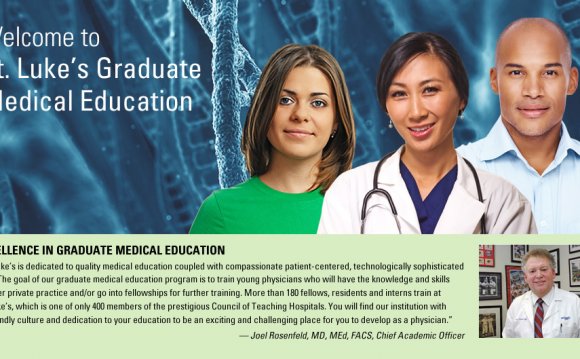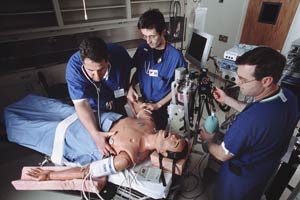
 My last evening shift was an example of all that is right with our current graduate medical education (GME) system. In spite of spending a Friday night in the hospital, the residents all seemed enthusiastic, engaged, caring, and collaborative. The surgeons treated a prisoner with a pneumothorax as if he were a VIP donor to the hospital, and the internal medicine residents whisked a patient with hyperkalemia to the ICU for aggressive treatment and monitoring without complaint. A pharmacist helped the nurses and the emergency medicine residents speed the preparation of the antidote for a rattlesnake bite. The attending trauma surgeon gave an impromptu lecture about the treatment of burns to assembled medical students, EMT students, and interns after two burn victims arrived. All the patients received outstanding care, the residents were learning and teaching, and the interdisciplinary and interprofessional teams were working well together. It was one of those days when I leave the emergency department thinking that we had been able to turn patients’ bad luck into good luck, that good deeds could overcome bad, and that our future doctors would go out into the world better trained and prepared for what might come their way. And I could take joy in my participation.
My last evening shift was an example of all that is right with our current graduate medical education (GME) system. In spite of spending a Friday night in the hospital, the residents all seemed enthusiastic, engaged, caring, and collaborative. The surgeons treated a prisoner with a pneumothorax as if he were a VIP donor to the hospital, and the internal medicine residents whisked a patient with hyperkalemia to the ICU for aggressive treatment and monitoring without complaint. A pharmacist helped the nurses and the emergency medicine residents speed the preparation of the antidote for a rattlesnake bite. The attending trauma surgeon gave an impromptu lecture about the treatment of burns to assembled medical students, EMT students, and interns after two burn victims arrived. All the patients received outstanding care, the residents were learning and teaching, and the interdisciplinary and interprofessional teams were working well together. It was one of those days when I leave the emergency department thinking that we had been able to turn patients’ bad luck into good luck, that good deeds could overcome bad, and that our future doctors would go out into the world better trained and prepared for what might come their way. And I could take joy in my participation.
But it does not always go like that. There are days when everyone seems exhausted, the computers are not working, the patients are complaining about the long waits, and in the midst of it all, a catastrophe occurs–a wrong medication is given, a patient stops breathing after a procedure, an innocent child arrives by ambulance after a motor vehicle crash and cannot be saved. On those days, we wonder what is wrong with medicine, GME, or the world in general.
Fortunately there are far more days when things go well than when they don’t. But that is not to say we cannot strive to improve our health care system through better GME. The entire September issue of Academic Medicine is dedicated to GME. Our hope is that these articles will stimulate our thinking about how to improve the GME system and create a strong and stable infrastructure for the future. I have provided a summary of the key issues and articles in my editorial and described my vision of how to make every day a good one.¹ In this issue, our authors ask how training will need to change to prepare our graduates for new care delivery systems in which teams will augment the skills of individual physicians, and how GME will be situated along the continuum of lifelong growth and development. Certain questions will continue to be debated–how many and what kinds of doctors will we need in the future, how should we finance GME, what skills will the future workforce need, and how will we know that they possess the needed knowledge and skills. In some cases, the articles in this issue suggest answers, and in others they describe the complexity of the questions and possible ways to find the answers in the future.
I hope the presentation of ideas for improving GME in our September issue will influence the education of our future clinicians, just as I attempt to do so at a personal level with individual residents caring for individual patients. For each of us, our personal experience informs, validates, and provides the inspiration for finding and implementing the best solutions possible to the questions facing our GME system. I invite a vigorous discussion about the articles published in the September issue as well as the current proposals for GME reform presented here, in letters to the editor, and in new submissions to Academic Medicine, so that we can go from good to great in GME.
RELATED VIDEO




 Residency is a stage of graduate medical training. A resident physician or resident (also called a specialty registrar / ST doctor in the United Kingdom and several Commonwealth countries) is a person who has received a medical degree (usually either a MD or MBBS...
Residency is a stage of graduate medical training. A resident physician or resident (also called a specialty registrar / ST doctor in the United Kingdom and several Commonwealth countries) is a person who has received a medical degree (usually either a MD or MBBS...








